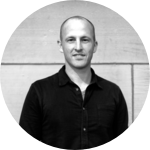About This Project
Economics shape science. Despite the importance, funding organizations have not sufficiently applied rigor and experimentation to measure how to improve science funding processes. Using our "science angel" program — enabling individuals to make discretionary funding decisions — as a mechanism, we will test how junior researchers' tastes and decision-making compare to senior researchers given the same amount of resources.
Ask the Scientists
Join The DiscussionWhat is the context of this research?
Science funding is an increasingly competitive sport. Researchers are spending more time pursuing grants, even as funding success rates are declining. Researchers have used contest theory models to show that increased competition reduces efficiency. Some models suggest a lottery selection process would be more effective. Others point towards an optimal funding schema that starts a high number of projects and abandons a high proportion of them over time, similar to the way that venture capital operates in the startup ecosystem.
So far, criticism of the peer-review process (roughly 60% of federal research funding) has focused on alternative mechanisms. We're taking a different, people-oriented approach by studying the characteristics of effective science funders.
What is the significance of this project?
The flows of research funding — both public and private, direct and indirect — dictate what gets studied and who does the studying. Only recently has the rigorous lens of the scientific method been turned onto the process of how that money is spent.
The data we have from the National Science Foundation on funding smaller, high-risk, high-reward research ideas outside of the traditional peer-review process is incredibly promising. It also tells us that this funding technique is currently underutilized among federal agencies.
The Experiment Foundation has operationalized a "science angel" program to allow for funder discretion, but outstanding questions remain about what characteristics make for better science funders.
What are the goals of the project?
The aim of this project is to evaluate whether or not career seniority correlates with the ability to effectively allocate resources to transformative research projects.
A group of 100 scientists — 50 junior and 50 senior — will be selected and each given a budget of $75k to allocate to projects on Experiment. They are free to use their discretion in how they recruit, select, and allocate that amount. At the end of a one-year period, they will have a portfolio of experiments to show their work. All of this is done in public on Experiment, with minimal overhead and the potential to leverage additional support from the crowd. Based on past data, we estimate those $100k budgets will turn into a portfolio of 8-20 supported projects.
Meet the Team
David Lang
I'm the Executive Director of the Experiment Foundation.
Prior to that, I co-founded Sofar (an ocean technology company), OpenROV (an underwater drone company), and Open Explorer (now Field Notes, a community of professional and amateur explorers around the world). I’ve been a member of NOAA’s Ocean Exploration Advisory Board, a TED Senior Fellow, and a National Geographic Emerging Explorer.
Lab Notes
Nothing posted yet.
Additional Information
Effective measurement is key. In the short term, we will measure portfolio performance (for each individual science angel, the senior/junior cohort, as well as the program overall) similar to how venture capitalists measure near-term returns: follow-on funding. We will track which Experiments lead to follow-on grants from federal agencies and philanthropists.
In the longer term (5-7 years) the projects, portfolios, and program will be evaluated using the same (or as close as possible) methodology used for the Wagner and Alexander assessment of the SGER program.
Project Backers
- 0Backers
- 0%Funded
- $0Total Donations
- $0Average Donation
